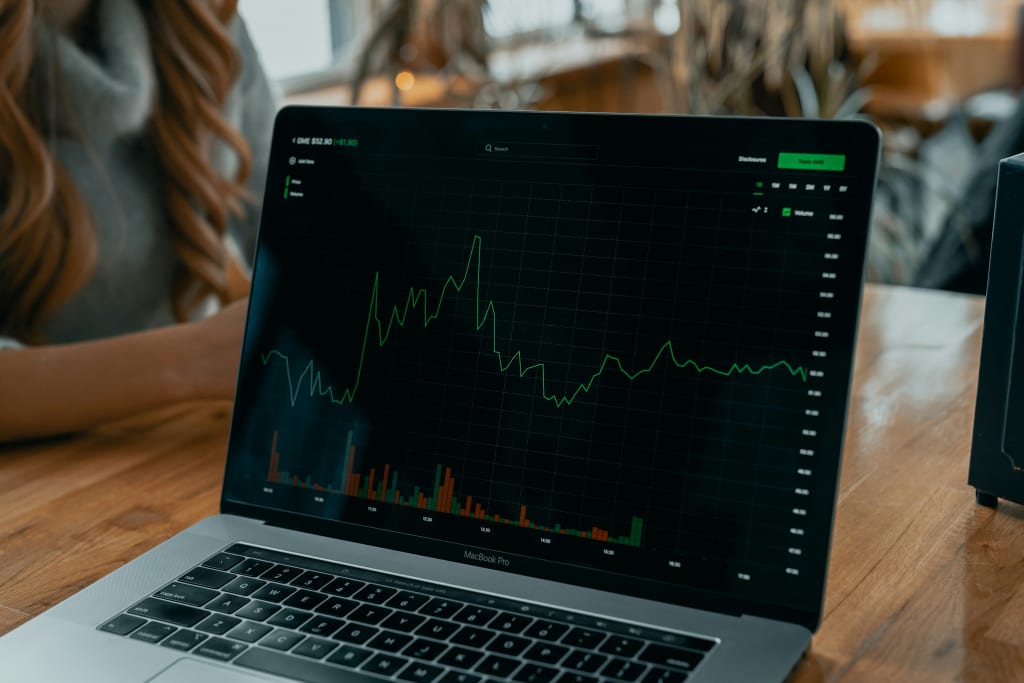The Future of Algorithmic Trading and AI in Finance
The Future of Algorithmic Trading: AI, Quantum Computing, and Emerging Trends

In recent years, the financial industry has witnessed a rapid transformation driven by advancements in technology, particularly in the fields of algorithmic trading and artificial intelligence (AI). These technologies have revolutionized the way financial markets operate, providing new opportunities and challenges for traders, investors, and financial institutions alike. In this article, we will explore the future of algorithmic trading and AI in finance, examining the key trends, challenges, and opportunities that lie ahead.
1. The Rise of Algorithmic Trading
Algorithmic trading, also known as algo trading or black-box trading, refers to the use of computer algorithms to execute trading strategies with speed and efficiency. Over the past decade, algorithmic trading has become increasingly prevalent in financial markets, accounting for a significant portion of trading volume across various asset classes, including stocks, bonds, currencies, and commodities.
One of the key drivers of the rise of algorithmic trading is the increasing complexity of financial markets. With the advent of electronic trading platforms and the globalization of financial markets, trading has become faster and more complex than ever before. As a result, manual trading strategies have become less effective, leading to the adoption of algorithmic trading by institutional investors, hedge funds, and proprietary trading firms.
2. The Role of AI in Algorithmic Trading
Artificial intelligence (AI) has played a crucial role in the advancement of algorithmic trading. AI algorithms, such as machine learning and deep learning, have the ability to analyze vast amounts of data and identify patterns and trends that human traders may not be able to discern. This enables AI-powered trading systems to make more informed and data-driven trading decisions, leading to potentially higher returns and lower risks.
One of the key advantages of AI in algorithmic trading is its ability to adapt to changing market conditions. Unlike traditional trading strategies that rely on fixed rules and parameters, AI algorithms can learn from past data and adjust their strategies accordingly, allowing them to perform well in both bull and bear markets.
3. Trends Shaping the Future of Algorithmic Trading and AI in Finance
a. Quantum Computing: Quantum computing has the potential to revolutionize algorithmic trading by enabling traders to process and analyze vast amounts of data at speeds that are currently unimaginable. Quantum algorithms could significantly enhance the efficiency and effectiveness of algorithmic trading strategies, leading to better trading outcomes.
b. Regulatory Challenges: As algorithmic trading and AI become more prevalent in financial markets, regulators are facing new challenges in ensuring market integrity and stability. Regulators are increasingly focusing on issues such as algorithmic transparency, market manipulation, and systemic risk, which could shape the future regulatory landscape of algorithmic trading.
c. Ethical Considerations: The use of AI in algorithmic trading raises important ethical considerations, such as the potential for biased or discriminatory outcomes. As AI algorithms become more complex and autonomous, ensuring fairness and transparency in algorithmic trading will be a key challenge for the industry.
d. Convergence of Finance and Technology: The convergence of finance and technology, often referred to as "fintech," is blurring the lines between traditional financial institutions and technology companies. This trend is driving innovation in algorithmic trading and AI, with new players entering the market and disrupting traditional business models.
4. Opportunities and Challenges
While algorithmic trading and AI offer significant opportunities for traders and investors, they also present a number of challenges. One of the key challenges is the potential for algorithmic trading to amplify market volatility and lead to market instability. This has raised concerns among regulators and policymakers, who are seeking to implement measures to mitigate these risks.
Another challenge is the increasing competition in algorithmic trading, as more players enter the market and adopt AI-powered trading strategies. This has led to a "race to the bottom" in terms of trading costs, which could squeeze profits for traders and investors.
Despite these challenges, the future of algorithmic trading and AI in finance looks promising. As technology continues to advance and new opportunities emerge, algorithmic trading and AI are likely to play an increasingly important role in shaping the future of financial markets. By staying abreast of the latest trends and developments in algorithmic trading and AI, traders and investors can position themselves to capitalize on these opportunities and navigate the challenges that lie ahead.
5. The Future Landscape of Algorithmic Trading and AI
As we look ahead, several key trends are likely to shape the future landscape of algorithmic trading and AI in finance:
a. Increased Adoption of AI: AI is expected to become more prevalent in algorithmic trading, with a growing number of financial institutions and hedge funds incorporating AI into their trading strategies. This trend is driven by the potential for AI to deliver superior returns and lower risks compared to traditional trading approaches.
b. Integration of Alternative Data: Alternative data sources, such as social media feeds, satellite imagery, and IoT sensor data, are increasingly being used in algorithmic trading to gain a competitive edge. AI algorithms are well-suited to analyze these large and unstructured datasets, providing traders with valuable insights into market trends and dynamics.
c. Evolution of Quantum Computing: Quantum computing has the potential to revolutionize algorithmic trading by enabling traders to perform complex calculations and simulations at unprecedented speeds. While quantum computing is still in its early stages, advancements in this field could lead to significant improvements in trading efficiency and profitability.
d. Enhanced Risk Management: AI-powered risk management systems are becoming increasingly important in algorithmic trading, helping traders identify and mitigate potential risks before they materialize. These systems leverage AI algorithms to analyze market data in real-time, enabling traders to make more informed decisions and avoid costly mistakes.
Conclusion
In conclusion, the future of algorithmic trading and AI in finance is characterized by rapid technological advancements and evolving market dynamics. As AI continues to reshape the financial industry, traders and investors must adapt to these changes and embrace new technologies to stay competitive.
By leveraging the power of AI and algorithmic trading, traders can gain a deeper understanding of market trends, identify profitable trading opportunities, and manage risks more effectively. While challenges such as regulatory scrutiny and ethical concerns remain, the potential benefits of algorithmic trading and AI in finance are vast, promising to usher in a new era of innovation and growth in the financial industry.
Dear Readers 💙
Enjoyed reading about the future of algorithmic trading and AI in finance? Give it a round of applause 👏, like, and don't forget to follow the author for more insightful content. Subscribe to our newsletters for the latest updates and trends in finance and technology!
About the Creator
BLESSING COOL
Digital Network Marketer || Crypto Enthusiat || Social Media Influncer || Skilled Serial Entrepreneur || Investor || Motivational Speaker || News Reporter.
Enjoyed the story? Support the Creator.
Subscribe for free to receive all their stories in your feed. You could also pledge your support or give them a one-off tip, letting them know you appreciate their work.






Comments
There are no comments for this story
Be the first to respond and start the conversation.